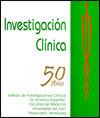Aspirin in primary cardiovascular prevention: the two faces of the coin and the importance of the Number Needed to Treat: a systematic review and meta-analysis.
IF 0.1
4区 医学
Q4 MEDICINE, RESEARCH & EXPERIMENTAL
引用次数: 0
Abstract
Aspirin has been an essential treatment for the primary preven-tion of cardiovascular diseases (CVD). Several randomized controlled studies do not support the routine use of aspirin, mainly due to its association with bleed-ing risk. This systematic review aims to advocate aspirin prescription based on the Number Needed to Treat (NNT) and the Number Needed to Harm (NNH). This combination provides a good measure of the effort to avoid an unfavor-able outcome, weighed against possible associated risks. A search of random-ized studies on aspirin treatment was conducted in two separate periods. Four studies from 1988-1998 and six from 2001-2018 were included in the analysis (157,060 participants). The primary endpoint was a composite outcome of Non-fatal Myocardial Infarction (NFMI), Non-fatal Ischemic Stroke (NFIS), and CV mortality. Major bleeding was a safety endpoint. We calculated the Absolute Risk Reduction (ARR%), NNT, and NNH, alongside the Relative Risk (RR) and 95% CI of each primary endpoint. The results of all included studies (10) showed a net benefit with aspirin treatment for NFMI (NNT= 259) and the composite outcome (NNT=292) with a significant relative risk reduction of 20% (p=0.003; I2= 0%) and 10% (p<0.001; I2= 0%), respectively. There was a relevant 60% in-crease in the bleeding risk (p<0.0001, NNH=208; I2= 3%). The NNT and NNH may constitute measures of efficacy and risk in clinical shared decision-making. However, it is essential to consistently establish that patients’ benefit-risk should be individualized and not represent a clinical guide for everyone.阿司匹林在初级心血管预防中的作用:硬币的两面和治疗所需数量的重要性:一项系统回顾和荟萃分析。
阿司匹林已成为心血管疾病(CVD)一级预防的基本治疗药物。一些随机对照研究不支持常规使用阿司匹林,主要是因为它与出血风险有关。本系统综述旨在倡导基于治疗所需数量(NNT)和伤害所需数量(NNH)的阿司匹林处方。这种组合为避免不利结果的努力提供了一个很好的衡量标准,权衡了可能的相关风险。在两个不同的时期进行了阿司匹林治疗的随机研究。该分析包括1988-1998年的四项研究和2001-2018年的六项研究(157,060名参与者)。主要终点是非致死性心肌梗死(NFMI)、非致死性缺血性卒中(NFIS)和CV死亡率的复合终点。大出血是一个安全终点。我们计算了每个主要终点的绝对风险降低(ARR%)、NNT和NNH,以及相对风险(RR)和95% CI。所有纳入的研究结果(10)显示阿司匹林治疗NFMI的净获益(NNT= 259)和复合结局(NNT=292),显著的相对风险降低20% (p=0.003;I2= 0%)和10% (p<0.001;I2= 0%)。出血风险增加60% (p<0.0001, NNH=208;I2 = 3%)。NNT和NNH可以构成临床共同决策的疗效和风险的衡量标准。然而,必须始终如一地确定患者的获益-风险应该是个体化的,而不是代表每个人的临床指南。
本文章由计算机程序翻译,如有差异,请以英文原文为准。
求助全文
约1分钟内获得全文
求助全文
来源期刊

Investigacion clinica
MEDICINE, RESEARCH & EXPERIMENTAL-
CiteScore
0.20
自引率
50.00%
发文量
2
审稿时长
>12 weeks
期刊介绍:
Estudios humanos, animales y de laboratorio relacionados con la investigación clínica y asuntos conexos.
 求助内容:
求助内容: 应助结果提醒方式:
应助结果提醒方式:


